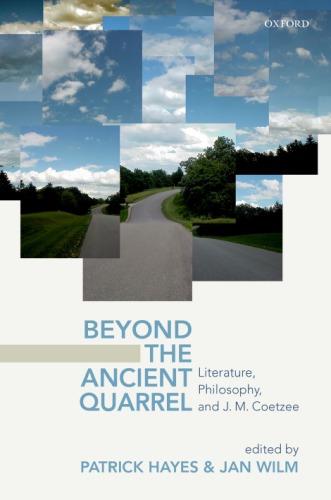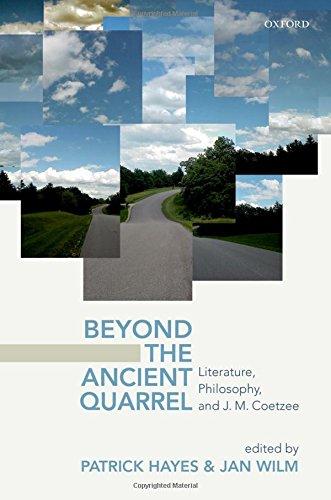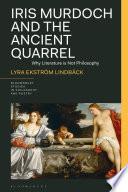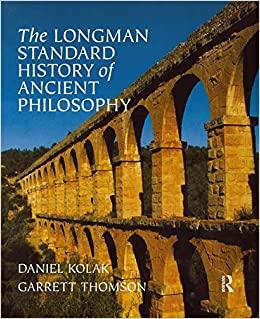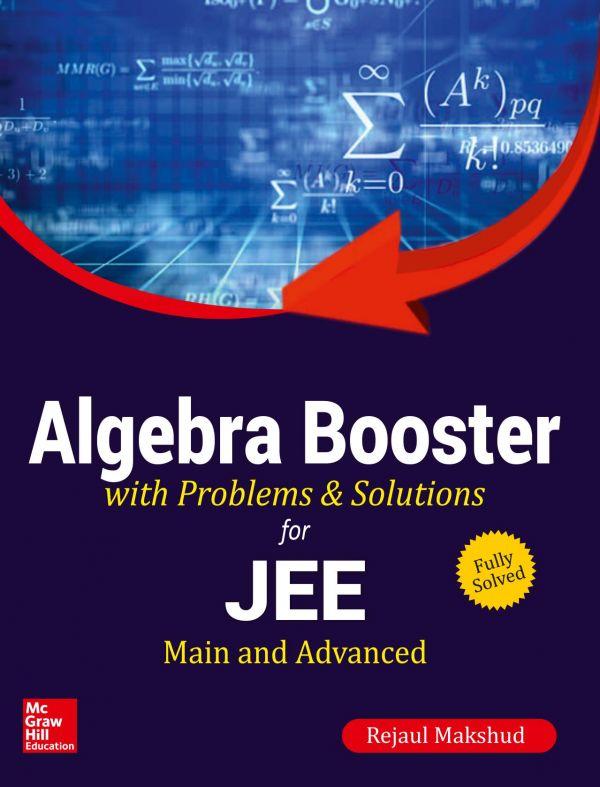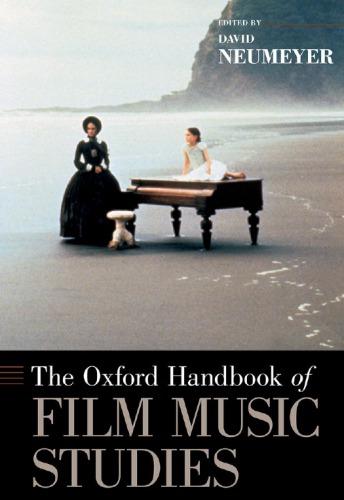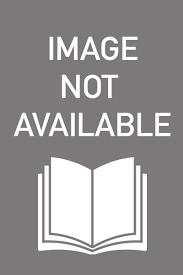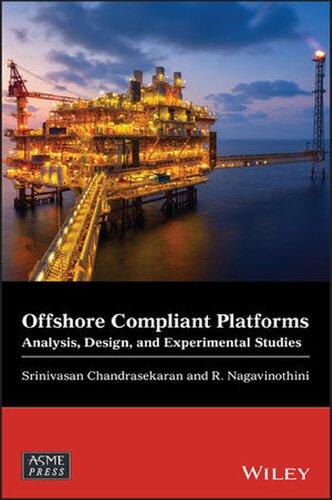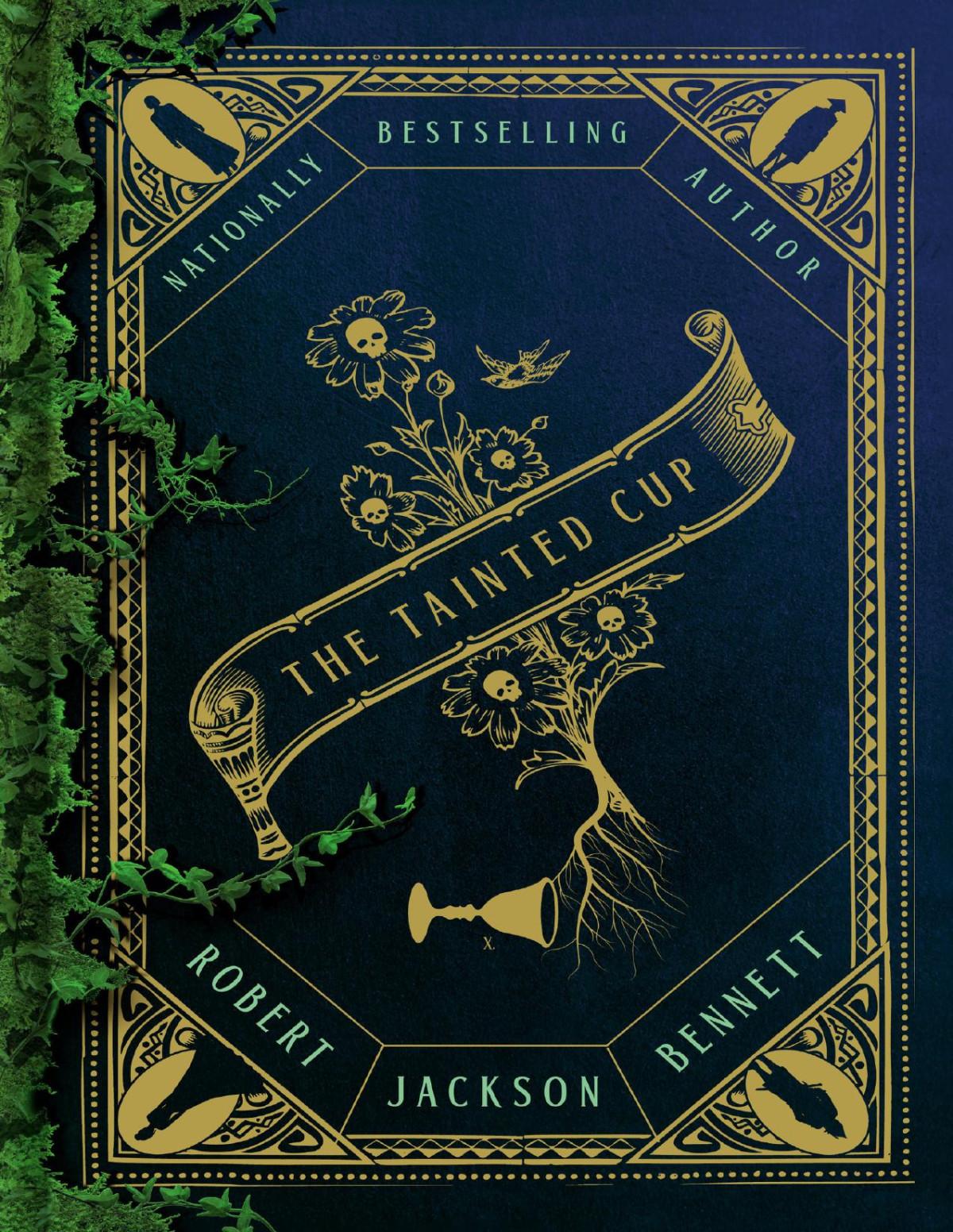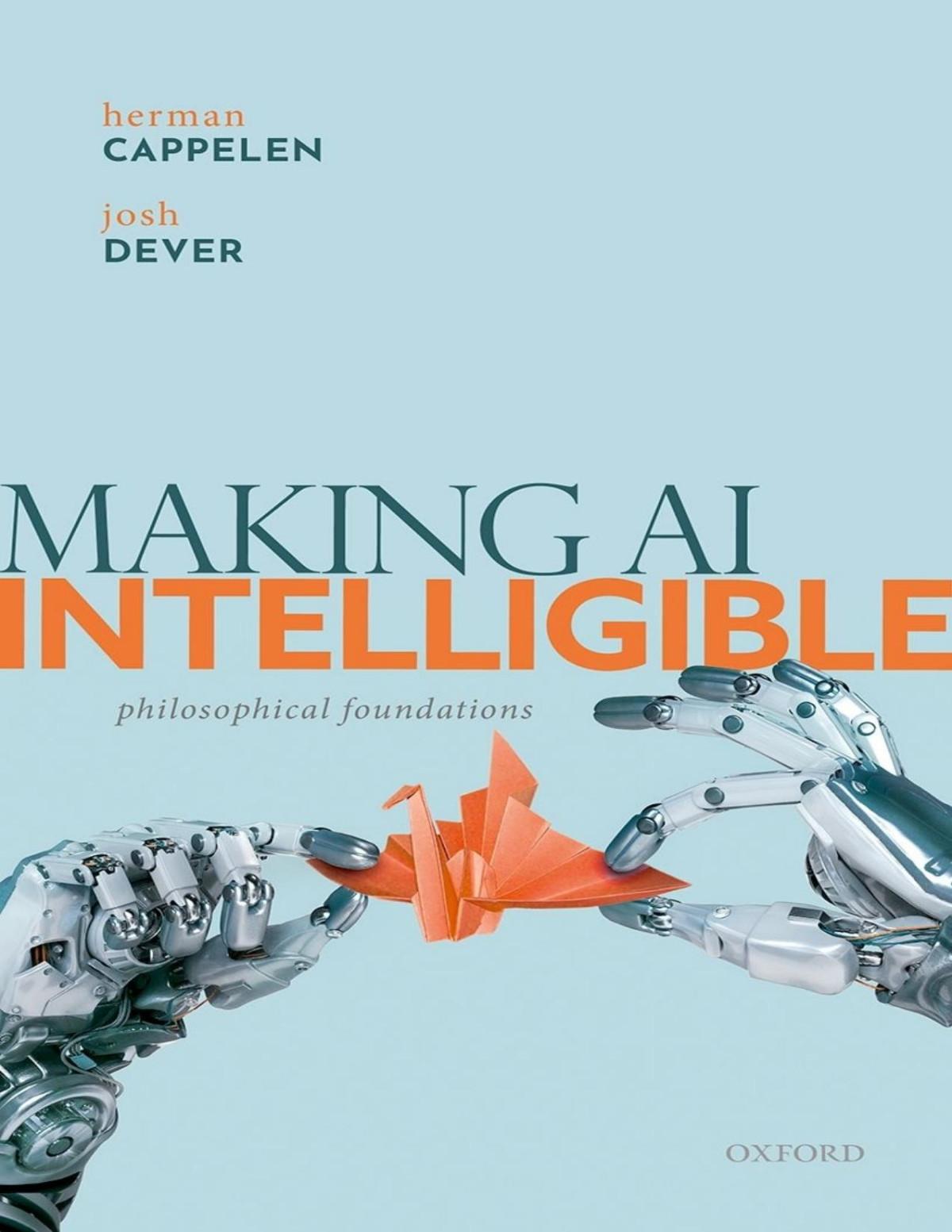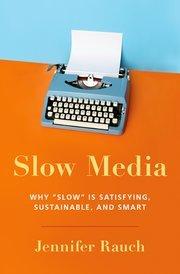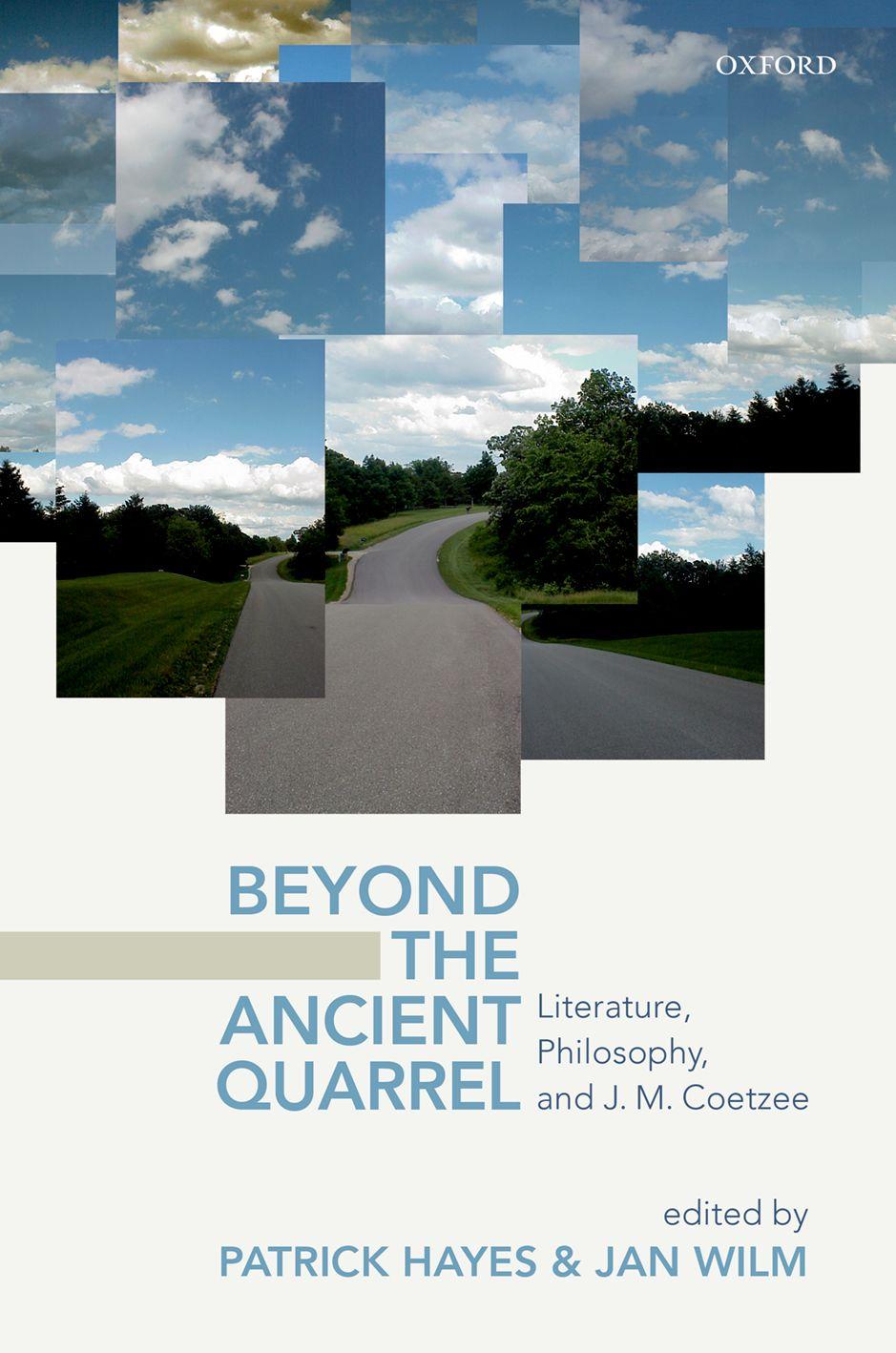ListofContributors
DerekAttridge istheauthorof J.M.CoetzeeandtheEthicsofReading:Literatureinthe Event (TheUniversityofChicagoPress,2004)andseveralessaysonCoetzee.Amonghis otherbooksare TheSingularityofLiterature (Routledge,2004)and TheWorkofLiterature (Oxford,2015),andtheco-editedvolumes WritingSouthAfrica:Literature,Apartheid,and Democracy,1970–1995 (CambridgeUniversityPress,1998), TheCambridgeHistoryof SouthAfricanLiterature (CambridgeUniversityPress,2012),and ZoëWicombandthe Translocal:WritingScotlandandSouthAfrica (Routledge,2017).HeisEmeritusProfessorat theUniversityofYorkandaFellowoftheBritishAcademy.
CarrolClarkson haspublishedwidelyonaesthetics,legaltheory,andSouthAfrican literatureandart.Herbooksinclude J.M.Coetzee:Countervoices (PalgraveMacmillan,2009; 2ndedition2013)and DrawingtheLine:TowardanAestheticsofTransitionalJustice (FordhamUniversityPress,2014).SheisProfessorandChairofModernEnglishLiterature attheUniversityofAmsterdam,andhasaresearchaffiliationwiththeAmsterdamSchoolfor CulturalAnalysis.SheisanHonoraryResearchAssociateattheUniversityofCapeTown.
AliceCrary isChairofPhilosophyattheNewSchoolforSocialResearch.Shewritesand publishesonissuesrelatedtomoralphilosophy,philosophyandliterature,Wittgenstein, J.L.Austin,feminismandphilosophy,philosophyandanimals,philosophyofmind/ language,andphilosophyandcognitivedisability.Herpublicationsinclude InsideEthics: OntheDemandsofMoralThought (HarvardUniversityPress,2016), BeyondMoralJudgment (HarvardUniversityPress,2007),theeditedcollection WittgensteinandtheMoralLife: EssaysinHonorofCoraDiamond (MITPress,2007),andtwoco-editedcollections, Reading Cavell (Routledge,2006)and TheNewWittgenstein (Routledge,2000)
AndrewDean recentlycompletedhisDPhilattheUniversityofOxford.Histhesisexamined postwarmetafictionandlife-writing,focusingonauthorsPhilipRoth,JanetFrame,and J.M.Coetzee severalchaptersrelatedtothethesisareforthcoming.HeisaNewZealand RhodesScholarandtheauthorofashortpopularbookontheeffectoftheeconomicreform periodinNewZealand: Ruth,RogerandMe:DebtsandLegacies (BWB,2015).
MaximiliandeGaynesford isProfessorofPhilosophyandHeadofDepartmentatthe UniversityofReading.FormerlyaFellowofLincolnCollege,Oxford,heistheauthorof severalbooks,including TheRiftintheLute:AttuningPoetryandPhilosophy (Oxford UniversityPress,2017)and I:TheMeaningoftheFirstPersonTerm (OxfordUniversity Press,2006),andofarticlesonaesthetics,philosophicallogic,thephilosophyofmind,and languageandethics.
JulikaGriem isProfessorofEnglishLiteratureatGoetheUniversityFrankfurt,Germany. Shehaspublishedonnarrativetheory,intermediality,thetwocultures,genretheory,and literatureandspace;herpublicationsincludebooksonJosephConrad,apesandmonkeysas figuresofaestheticandanthropologicalreflectionbetween1800and2000,andtheintrinsic logicofcities.HercurrentresearchprojectsareconcernedwiththeScottishauthorJohn Burnside, figurationsofthewhole,philologicaleconomiesofscale,andmethodologiesof contemporaryliteratureresearch.Afurtherinterestisdedicatedtoformsandstylesof sciencepolicyandthehumanities’ contributionstoacademicinstitutionbuilding.
PatrickHayes isAssociateProfessorofEnglishLiteratureatOxfordUniversity,anda FellowofStJohn’sCollege.Hisresearchfocusesondebatesaboutthenatureandvalueof literature,fromtheRomanticperiodtothepresentday.Heistheauthorof J.M.Coetzee andtheNovel:WritingandPoliticsafterBeckett (OxfordUniversityPress,2010)and Philip Roth:FictionandPower (OxfordUniversityPress,2014).Heiscurrentlyworkingona historyoflife-writingintheperiodafter1945.
EileenJohn isAssociateProfessorofPhilosophyattheUniversityofWarwick.Herresearch isinaesthetics,withparticularinterestsinart’sethicalandcognitiverolesandinthe relationsbetweenliteratureandphilosophy.Sheco-editedBlackwell’ s PhilosophyofLiterature anthologyandisCo-DirectoroftheCentreforResearchinPhilosophy,Literatureand theArts,UniversityofWarwick.
PeterD.McDonald isProfessorofEnglishandRelatedLiteratureattheUniversityof OxfordandaFellowofStHugh’sCollege.Hewritesonliterature,themodernstate,and thefreedomofexpression;thehistoryofwritingsystems,culturalinstitutions,andpublishing;multilingualism,translation,andinterculturality;andonthelimitsofliterary criticism.Hismainpublicationsinclude BritishLiteraryCultureandPublishingPractice, 1888–1914 (CambridgeUniversityPress,1997), TheLiteraturePolice:ApartheidCensorship anditsCulturalConsequences (OxfordUniversityPress,2009),and ArtefactsofWriting:Ideas oftheStateandCommunitiesofLettersfromMatthewArnoldtoXuBing (OxfordUniversity Press,2017).
StephenMulhall isProfessorofPhilosophyandTutorialFellowatNewCollege,University ofOxford.HisresearchinterestsincludeWittgenstein,Heidegger,andNietzsche;philosophyandreligion;andphilosophyandthearts.Hispublicationsinclude TheWounded Animal:J.M.CoetzeeandtheDifficultyofRealityinLiteratureandPhilosophy (Princeton UniversityPress,2009), TheSelfandItsShadows:ABookofEssaysonIndividualityas NegationinPhilosophyandtheArts (OxfordUniversityPress,2013),and TheGreatRiddle: WittgensteinandNonsense,TheologyandPhilosophy (OxfordUniversityPress,2015).
Jean-MichelRabaté isProfessorofEnglishandComparativeLiteratureattheUniversityof Pennsylvania.Heisoneoftheeditorsofthe JournalofModernLiterature,aco-founderand seniorcuratorofSloughtFoundation,Philadelphia(slought.org),andafellowofthe AmericanAcademyofArtsandSciences.Recentpublicationsinclude ThePathosofDistance (Bloomsbury,2016), Think,Pig! (FordhamUniversityPress,2016),and LesGuerresde JacquesDerrrida (Pressesdel’UniversitédeMontréal,2016).
JanWilm isLecturerinEnglishLiteratureatGoetheUniversityFrankfurt,Germany.He istheauthorof TheSlowPhilosophyofJ.M.Coetzee (BloomsburyAcademic,2016)and co-editor(withMarkNixon)ofavolumeonSamuelBeckettandGermanLiterature, Samuel BeckettunddiedeutscheLiteratur (Transcript,2013).Heiscurrentlywritingabookonthe aestheticsofsnowandpreparingavolumeofessaysontheGermanwriterMichaelLentz. Healsoworksasaliterarytranslator,havingtranslatedworkbyMaggieNelsonandAndrew O’HaganintoGerman,andasabookreviewerforthe FrankfurterAllgemeineZeitung and the NeueZürcherZeitung,amongothers.
MartinWoessner isAssociateProfessorofHistoryandSocietyatTheCityCollegeofNew York’sCenterforWorkerEducation,whereheteachescoursesinintellectualandcultural historyatbothgraduateandundergraduatelevel.Heistheauthorof HeideggerinAmerica (CambridgeUniversityPress,2011).Hisessaysandreviewshaveappearedin LaMaleta dePortbou, TheLosAngelesReviewofBooks,and Raritan.
AncientQuarrels,ModernContexts
AnIntroduction
PatrickHayesandJanWilm
From Dusklands (1974)onwards,J.M.Coetzee’ s fictionhasbeenrichlyallusive tophilosophicalidiomsandtraditions,andhismostrecentworkhasstaged philosophicalquestionsinincreasinglyexplicitways.Thetextsthatfeaturethe characterElizabethCostello(TheLivesofAnimals [1999], ElizabethCostello [2002], and SlowMan [2005]),thevolumesofcorrespondencewithPaulAuster(2013) andArabellaKurtz(2015),togetherwithhislatestnovels TheChildhoodofJesus (2013)and TheSchooldaysofJesus (2016),allengageinovertwayswithphilosophicalargumentsabout,amongotherthings,thenatureofjustice,reason,subjective experience,thegoodlife,andthegoodsociety.Therehasbeensomeremarkable scholarshipthatreflectsuponCoetzee’sengagementwithphilosophy,fromDerek Attridge’sworkonCoetzeeandethics( J.M.CoetzeeandtheEthicsofReading [2004]),toStephenMulhall’sstudyofhowCoetzee’ s ‘modernistrealism’ engages withphilosophicalideas(TheWoundedAnimal [2009]).Butsofarnostudyhas succeededeitheringatheringtogethertherangeofquestionsaboutliteratureand philosophythatCoetzee’ s fictionprovokes,orinexaminingwhatisreallyatstakein thekindsofthinkingthathisoeuvrestimulates.
Theclosestthingtosuchastudyisthecollectionofessaysassembledbythe philosophersAntonLeistandPeterSinger, J.M.CoetzeeandEthics:Philosophical PerspectivesonLiterature (2010).Thiscollectionbroughttogetherarangeof philosophers,mainlyfromtheanalytictradition,toreflectondifferentaspectsof Coetzee’sworkfromtheperspectiveofmoralphilosophy,withaparticularfocuson animalrights.Whilethisvolumeincludessomeextremelygoodwork,itwas constrainedbysomekeyassumptions.Moststrikingly,ittendedtodownplaythe extenttowhichCoetzee’swritingobligesustoreflectuponwhatSocrateswas alreadycalling,in TheRepublic,the ‘ancientquarrel’ betweenliteratureand philosophy.1 Manyessaystendedtospeakaboutliteratureandphilosophyasif
1 Plato, CompleteWorks,ed.JohnM.Cooper(Indianapolis:HackettPublishingCompany,1997), p.1211.ItsuitsSocratestorefertothequarrelthatheisstartingbetweenliteratureandphilosophyas ‘ancient’,andtheevidenceheproducesofitshistoryisactuallyveryslight: ‘Butincasewearecharged withacertainharshnessandlackofsophistication,let’salsotellpoetrythatthereisanancientquarrel betweenitandphilosophy,whichisevidencedbysuchexpressionsas “thedogyelpingandshriekingat itsmaster,”“greatistheemptyeloquenceoffools,”“themobofwisementhathasmasteredZeus,” and “thesubtlethinkers,beggarsall.”’
theywereself-evidentlydistinctformsofdiscourse,bothintheirnatureandtheir functions.Moreover,theeditorsofthecollectionapproachedCoetzee’sworkwith theimplicitsenseofadisciplinaryhierarchy.Theverysubtitleofthecollection, PhilosophicalPerspectivesonLiterature,positionedliteratureasthepassiveobjectof knowledgewhichphilosophywouldilluminate,orwhichphilosophywoulduseas incidentalmaterialforthepurposesofaphilosophicalargument.Theseassumptionstendedtoclosedownthepossibilitythatliteraturemightitselfposequestions aboutthevalueofphilosophicalreasoning,orthatitmightofferadisparateoreven rivalformofthinkinginitsownterms.
Perhapsbecauseoftheseassumptions,LeistandSingerlimitedtherangeof implicationthatCoetzee’sworkcarriestoveryspecific fieldsofphilosophical inquiry,andtoanarrowconceptofutility-to-philosophy.Coetzee’swritingis mostlikelytobeuseful,theyimplied,tothosewhoareengagedinthespecific fieldofethics,andespeciallyappliedethics.Oneaimofthepresentcollectionis thereforetoletCoetzee’ s fictionspeaktoabroaderrangeofphilosophicalquestions,andtherebyrepresentthenatureandvalueofhiswritingmoreadequately. IttakesthediscussionofCoetzeeandphilosophyintonewterrainbyallowinghis worktoresonatebeyondtherealmofmoralphilosophy withoutneglectingthis keypreoccupationofCoetzee’swork intootherkindsofphilosophicalinquiry. ItincludeschaptersonCoetzee’srelationshipwith,andimpactupon,adiverse rangeofphilosophicalsubjects,includingthephilosophyofaction,thephilosophy oflanguage,theconceptofrationality,questionsaboutthenatureofreality,and adistinctengagementwithquestionsaboutaesthetics.Italsoopensoutonto broaderthemesthatintersectwithphilosophicalinquiry,includingeducation, theology,psychoanalysis,andpost-sec ularism.Broadeningoutfromsubjectspeci fi careas,thepresentcollectionalsoexplorestheinstitutionalenvironments thathavematteredmostforCoetzee’sengagementwithphilosophy,suchasthe statusofhisarchive,andthephilosophicallegaciesatstakeintheresistancepolitics ofhisnativeSouthAfrica.
ButaswellasenlargingtheparametersthroughwhichCoetzee’ s fictionmightbe addressed,thedeeperaimofthisbookistoexaminethewaysinwhichCoetzee invitesustoreopenlongstandingquestionsabouttheboundariesbetweenliterature,literarycriticism,andphilosophy.Itistoaskhowthesedifferentformsof discoursemightbeabletoengageeachother thoughinawaythatdoesnotignore theirconsiderabledifferences,andtheoftendisparatekindsofthinkingthey engageanddemand.Inshort,ouraimwastotreattheassumptionsthatlimited J.M.CoetzeeandEthics verymuchasopenquestionsthatCoetzee’ s fictionhelpsus toexplore.Arewesureweknowwhatliteratureandphilosophyactuallyare,how theycanbedefinedanddelimited,bothintheir ‘ essence ’ andfromadisciplinary perspective?Thatistosay,arethereformsofthinkingthataretrulyspecifictothe oneandnecessarilyexcludedfromtheother?AsKarlAmerikshaspointedout,
[T]heverynotionofasharpdistinctionofthephilosophicalandthenon-philosophical isitselftheresultofafairlyrecentphenomenon.PriortoKant,noneofthetrulygreat modernphilosophershadlivedthelifeofaphilosophyprofessor notDescartes,not
Leibniz,notHume.Conversely,theearlyromanticsallstudiedphilosophyclosely,and mostofthemshowedseriousinterestinanacademiccareerinphilosophy.2
Likewise,inhislecturesonthecross-currentsbetweenliteratureandphilosophy, PhilosophienderLiteratur (2013),FriedrichKittlernotesthatwhilethere ‘isno doubtthatmanylanguagesonthisearthhavebroughtforthliteratureandthat todaythereexistsliteratureinnearlyalllanguages’,hequestionswhetherphilosophyhasbeenequallyubiquitous.Kittlerhistoricizesthewaysinwhichancient Greecegaverisetophilosophy,andemphasizesthatacultureofwriting,poetry, andmusichasplayedakeypartintheshapingofwhatiscalledphilosophy, suggestingthatthereexistedandcontinuestoexistafruitfulinteractionanda cross-fertilizationbetweenthesedifferentformsofdiscourse.3 What,then,arethe intellectualcommitmentsthatcreatedisciplinaryboundariesbetweenliteratureand philosophy,orbetweenphilosophyandliterarycriticism?Andwhatisthevalueofa bodyofwritingsuchasCoetzee’sthatinvitesustoquestionthoseboundaries?
TherearemanyreasonswhyCoetzee’ s fictionisparticularlyinterestingtothink aboutinrelationtothesequestions.Oneofthemostsignificantisthefactthat,just asnoneofthegreatphilosopherspriortoKantlivedthelifeofaprofessional philosopher,neitherhasCoetzeeexactlylivedthelifeofaprofessionalwriter,at leastassuchalifeisconventionallyunderstood.Hehasbeenawriter-cumacademic,a ‘fictioneer’,ashehasdescribedhimself,whohasalsopublishedvery considerableacademicmonographsonthehistoryandtheoryofliterature.Hehas co-taughtseminarsalongsidephilosophersattheUniversityofChicago,andhas developedlongstandingfriendshipswithleadingphilosophers,suchasRaimond Gaita,RobertB.Pippin,andAndréduToit.
InfactCoetzee’sinterdisciplinaryinterestsareconsiderablymorediversethan thisbriefsummarysuggests.HegraduatedfromtheUniversityofCapeTown (UCT)in1961withhonoursinbothEnglishandMathematics,andinitiallyitwas unclearwhatdirectionhewouldpursue.HemovedtoLondoninDecember1961, wherehewrotehisMaster’sthesisonthe fictionofFordMadoxFord,while atthesametimeembarkinguponacareerasacomputerprogrammerat IBM.There,heusedhistraininginmathematicstorundatatestsforprivate clientsontheirnew ‘mainframe’ computers;inhissparehourshe ‘[e]xperiment[ed] withcomputer-generatedpoetry’ . 4 Hisinterestinmathematicswouldresurface throughouthislife,increasinglywithregardtothephilosophyofnumbers.In
2 KarlAmeriks, ‘Introduction:InterpretingGermanIdealism’,in TheCambridgeCompaniontoGerman Idealism,ed.KarlAmeriks(Cambridge:CambridgeUniversityPress,2000),pp.1–17;12.
3 FriedrichKittler, PhilosophienderLiteratur (Berlin:MerveVerlag,2013),p.10(ourtranslation).
4 DavidAttwell, J.M.CoetzeeandtheLifeofWriting:FacetoFacewithTime (Oxford:Oxford UniversityPress,2015),p.12.SeealsoJ.C.Kannemeyer, J.M.Coetzee:ALifeinWriting, trans.MichielHeyns(Johannesburg/CapeTown:JonathanBallPublishers,2012),pp.121–5. Also,seeCoetzee’streatmentofthisinhis fictionalizedautobiography Youth (London:Secker& Warburg,2002),pp.160–1.
TheChildhoodofJesus and TheSchooldaysofJesus,thecharacterknownasDavid(in Childhood)andDavíd(in Schooldays) findsit firstimpossibletolearnconventional countingroutines,andthenlearnstodance ‘thenumbersdownfromwherethey liveamongthealoofstars’;in HereandNow,hisexchangeofletterswithPaul Auster,Coetzeeengagesacritiqueofmathematicalconventionsinhisownvoice.5
AsAliceCraryshowsinherchapterinthiscollection,Coetzee’searlyinterestin mathematicshaddevelopedbythisstageintoacomplexreflectiononarguments aboutcounting,learning,andtheconceptofaprivatelanguage,that findtheir classicalexpressioninLudwigWittgenstein’ s PhilosophicalInvestigations.
SoperhapsitwasunsurprisingthatCoetzeedidn’tlastlongatIBM.In Youth,a textthatispoisedinanuncertainrealmbetween fictionandautobiography(amode thatCoetzeehaselsewheredescribedas ‘ autrebiography’),thecharacterknownas ‘John’ isappalledtodiscoverthat,farfromusingmathematicsinthedisinterested pursuitofknowledge,heisbeingrequiredbythemeningreysuitstorundatatests foranuclearweaponsmanufacturer.6 Onesymptom,perhaps,ofhisgrowing alienationfromcorporatelifewasanincreasingdevotiontothe fictionofSamuel Beckett,andCoetzee’snextmovewastotheUniversityofTexasatAustin,where hewouldwritehisdoctorateonBeckett’sEnglish fiction.
Thisdoctoratewasamostunusualpieceofwork.Itwascompletedin1969,ata timewhenEnglishstudiesinAmericawasstilldominatedbyanapproachknown astheNewCriticism.Concernedtoestablishliterarycriticismasarespectable disciplineinitsownright,theNewCritics(agroupthatencompassedadiverse rangeofintellectuals,fromJohnCroweRansomtoCleanthBrooks)hadstressed theautonomyoftheliterarytext,andstrivedtomakeliteraryinterpretationintoa teachableart.Onlytheproperlyinitiatedcouldgeneratethesuperfineattentionto stylisticqualitiessuchasparadox,irony,andambiguity,andappreciatehowthetext wastherebywovenintoanuntranslatableexpressivewhole,thatwasdemandedby theprofessionalcritics.Coetzeeneverhadanypatiencewiththiskindofliterary hermeticism.Yearslater,whenteachingatUCT,hetypedupamemorandumon therelatedtopicofPracticalCriticism:
PracticalCriticismisnotacriticaltheorybutapackagedesignedtosimplifyandstreamline thepreparationoflargenumbersofculturallysemi-literatestudentsforcareersinschoolteaching.Asateachingpackage,itismodelledonadrasticallyoversimplifiedversionof humanpsychology.Designedwiththelimitationsofthe45-minutetutorialinmind,it fostersaskillindoingrapidexplicationsofhalf-pagetextswithatightsemanticstructure. Sincesuchtextsarelargelyunrepresentativeofthevastbodyofliterature,therelevanceof PracticalCriticismtoliterarycriticismissmallerthanonemightbeledtothink.7
5 J.M.Coetzee, TheSchooldaysofJesus (London:HarvillSecker,2016),p.68.
6 J.M.Coetzee, DoublingthePoint:EssaysandInterviews,ed.DavidAttwell(Cambridge,MA/ London:HarvardUniversityPress,1992),p.394.
7 PracticalCriticismdescendsfromthewritingsofI.A.Richards;whileitwasnotidenticalwiththe NewCriticism,itwasinmanywaysaprecursortoit.Thequotationisfromatwo-pagememorandum entitled ‘PracticalCriticismatU[niversityof]C[ape]T[own]’,datedJuly1977,intheJ.M.Coetzee PapersattheHarryRansomCenter,Container113,Folder4.
Bycontrast,Coetzee’sthesiswasdeterminedlyinterdisciplinary.Itwasanattempt toplaceliteraryinterpretationonastrongerintellectualfootingbyintegrating criticismwithstatisticalanalysis.ThemethodCoetzeeengagedwithwasknown as ‘stylostatistics’,anapproachpioneeredbyGeorgeUdnyYuleandWilhelmFucks tostudylanguagepatterningincomplextexts:Coetzee’shopewasthatstylostatisticscouldbeintegratedwithmoretraditionalformsofliteraryinterpretationthat trytoaccountforthewidermeaningfulnessofatext.However,withremarkable honestyforayoungmanatthebeginningofhiscareer,Coetzeeconcludedthat stylostatisticswassimplynotasusefulashehadhopeditwouldbe ‘asacreativetool ofexplicationinsingletexts’.Thiswas,heexplained,duetotheinabilityofa methodgroundedinstatisticalanalysistoaccountforthewayinwhichtheeventof readingisnotalinearprocess,butinvolvesthe ‘incessantrecursion’ ofcreatingand revisinghypothesesaboutatext.Incontrasttotheinventivenessofthesubjective reader,stylostatistics ‘canonlysubstantiatediscoveries’,heconcluded,and ‘ never initiatethem’ . 8
Whilethiswasanunpromisingconclusionforadoctoralthesistohavereached, Coetzee’sdistrustofseeminglyobviousinstitutionalassumptionswasalready takinghimininterestingdirections.Asitgroundtoahalt,Coetzee’sthesisopened upaseriesofquestions:
Towhatextent … arepointsofstylisticdensityfunctionsoftheworkitselfandtowhat extentfunctionsofourreadingofit? Shouldstylebestudiedinitseffectsonthe reader,andthusinitsexpressiveaspect,orinitsobjectivelyverifiableformalproperties?Iftheformer,wherearewetodrawthelinebeyondwhichcriticismdegenerates intothesubjectivevaguenessof ‘moods’ and ‘ tones ’?Ifthelatter,howcanwegive equalweighttopropertieswhichareperceptibletoanintelligentreaderandproperties whichrevealthemselvesonlyunderagrammaticalorstatisticalmicroscope?9
Eachofthesequestionsturnsonadeeperquestionaboutthenatureofliteratureas aformofdiscourse,andaboutthenature(andlimits)ofliterarycriticism.For Coetzee,thequestionofwhatmakesliteratureintoliterature(Isitaninherent quality?Isitthedesireofthereaderoraconventionofreadingthatframesthetext asliterary?)isanentirelyopenone.Itisequallyuncleartohimwhatliterary criticismis,orwhatitshouldbe:hemakesnoassumptionsonthisfront.In Summertime (2009),thethirdinstalmentinhis fictionalizedautobiography, thosepeoplethrownintorelationshipswiththeyoung ‘John’ tendedto findhim aratherobtuseyoungman.Butthisobtuseness,whichiscertainlyondisplayhere inhisdoctoralthesis,isnotdissimilartotheobtusenessthatsofrustratestheparents ofyoungDavid(orDavíd)inthe Jesus novels.Hisveryinabilitytogoalongwith institutionalizedrolesandroutinesbringswithitnotonlyacertainlevelof frustrationandannoyance,butalsoacertaincreativepossibility.
8 J.M.Coetzee, ‘TheEnglishFictionofSamuelBeckett:AnEssayinStylisticAnalysis’,PhDthesis, UniversityofTexasatAustin,1969,pp.160–2.
9 Ibid.,p.153.
ItwasverymuchagainsthiswillthatCoetzeeendedupbackinSouthAfrica teachingEnglishatUCT,apositionhehelduntilheretiredfromacademiclifein 2001.His firstjobwasasanassistantprofessorattheUniversityofBuffaloinNew Yorkstate,thenathrivingcampusforliterarystudies,whichfeaturedsuch luminariesasRobertCreeleyandLeslieFiedleronitsstaff.Buffalohadembraced whatPatrickFfrenchhascalledthe ‘timeoftheory’,anditwasherethatCoetzee wasexposedtothinkerssuchasMichelFoucaultandespeciallyRolandBarthes anenduringlyimportantinfluence whomovedfreelybetweenphilosophical reflectionandliteraryanalysis.10 HelosthisAmericanvisaasaresultofparticipatinginaprotestoncampus,andarrivedatUCTin1971.Atthistime,alongwith severalotherCommonwealthnations,theteachingofEnglishliteratureinSouth AfricawasdominatedbyF.R.Leavis’sstronglymoralisticapproachtoliterary criticism,whichwasactivelyhostiletomorephilosophicalkindsofreflectiononthe natureandvalueofliterature.Leavishadinsistedthatthevalueofreadingwasto increaseourunderstandingof ‘feltlife’,yetatthesametimehestronglyresistedany attempttodefinewhatthatactuallywas,onthebasisthattodosowouldbetofall intothealienatedformofphilosophicalreasoningthatliteratureis(putatively) theretosaveusfrom.Coetzeewasuncomfortablewiththeinward-lookingand, hefelt,intellectuallylazyacademicenvironmentthatthisapproachseemedto permit.11 EvenasUCTgraduallyreformed,openingitselftootherwaysofthinking aboutliterature,hetendedtolookelsewhereforintellectualcompanionship,which heeventuallyfoundintheCommitteeforSocialThought(CST)attheUniversity ofChicago.Theemphasisofthisinstitutiononthinkingacrossdisciplinary borderlineswasverycongenialtoCoetzee,andinthe1990shebeganalongstandingconnectionwiththeCommittee,teachingcoursesonhisownaswellas togetherwiththephilosopherJonathanLear.AsDavidAttwellpointsout,with LearCoetzee ‘taughtcomparativeliteratureoncongenialterms anentiresemester onautobiography,orTolstoy,orProust;intheseexamples,themesandauthors thatwererelevanttothewritinghewaspursuingatthetime,especiallythe autobiographies’ . 12 J.C.Kannemeyernotesinhisbiographythattheseminars organizedbyCoetzeeandLeartendedtotaketheformof ‘relaxedSocratic conversationsonacommontopicwithstudents’ . 13
Coetzee’svisitstoChicagocontinueduntil2003,andinthefalltermof1996he taughtacoursetitled ‘RealismintheNovel’.Thecourseencompassedreadingsof GustaveFlaubert’ s MadameBovary andIvanTurgenev’ s FathersandSons,alongside MigueldeCervantes’ s DonQuixote andJamesJoyce’ s Ulysses.Forthecourse, Coetzeehadpreparedalecturetitled ‘Retrospect’,whichhebeginsbyreferring explicitlytothe ‘ancientquarrel’ betweenliteratureandphilosophyasitrelates torealism:
10 PatrickFfrench, TheTimeofTheory:AHistoryofTelQuel1960–1983 (Oxford:Oxford UniversityPress,1995).
11 SeeKannemeyer, J.M.Coetzee:ALifeinWriting,pp.227,366.
12 Attwell, J.M.CoetzeeandtheLifeofWriting,p.212.
13 Kannemeyer, J.M.Coetzee:ALifeinWriting,p.482.
YouwillhavenoticedthatbothPlatoandAristotletakeitasabasicassumptionthat artisamatterofimitation(mimesis)ofsomethingthatpre-exists.ToPlatoitis inconceivablethatartcanbringintoexistencesomethingthatneverexistedbefore. ThatiswhyPlatodoesnotseeanypointtoit.Ifyouwanttolearnabouthonourand truthfulnessandbravery,studythemphilosophically,oratleastlearnaboutthemvia peoplewhoexhibitthem.Whybothertogoto fictionalrepresentationsofpeople whoexhibitthem?ThevariouscriticsofDonQuixoteagree;iftherearenoreal heroesaround,gotowell-attestedrecordsofheroes,thatis,tothehistoricalrecord. (Thehistoricalrecord?saysQuixote? Andthat’snotarepresentation?)14
AsCoetzeecontinues, DonQuixote emergesevenmorepowerfullyasacounterweighttoPlatoandAristotle:
IhavebeenpresentingDonQuixotetoyounotsomuchasanexemplaryrealisttext asabookinwhichthephilosophicalquestionofrealismisapproachedina fictional medium.Inotherwords, fictiondoesnotyieldtophilosophybysayingthatphilosophicalquestionscanbeapproachedinthediscourseofphilosophy.15
WhileitisclearthatCoetzee’ssympathieslie firmlywiththemanfromLaMancha, hisacademicteachingreflectstheinterestinthinkingacrossdisciplinaryboundaries thathis fictionalsopursues,albeitindifferentways.
WhileCoetzeeisofcoursenotuniqueinthepostwarperiodforcombininghis activitiesasawriterwithacareerasanacademic,mostwritersinvolvedwiththe academyhavetendedtooffercoursesincreativewritinginstructionratherthan coursesthatstrayontotheterrainofliterarytheoryandphilosophy.AsAndrew DeanarguesinChapter4,Coetzeeisunusualfortheextenttowhichhehas interweavedhisinterestsasawriterandasa literarytheorist,cross-fertilizingthe onefromtheother.Dean’schapterexploresCoetzee’sinauguralprofessoriallecture atUCT, TruthinAutobiography (1985),whichCoetzeewouldlaterpinpointas ‘thebeginningofamorebroadlyphilosophicalengagementwithasituationinthe world’ . 16 Thislecturefollowedthepatternofhisdoctoralthesisbyobtuselyquestioning,ratherthanacceptingandexploiting,longstandinginstitutionalizedassumptionsaboutthenatureandvalueofliterarycriticism whichwas,ashetakescareto observeinthelecture,preciselytheformofwritinghewasbeingpaidincreasingly largesumsofmoneytodo.Coetzeeusedtheoccasionofhisinaugurationtocriticize theassumptionthatliterarycriticismcanrevealtruthsaboutliteraturetowhich literarytextsarethemselvesblind.What,heasks,aretheblind-spotsofliterary criticism?Whataretheformsofdesire(forpower?formoralsuperiority?)thatit musthidebehindamaskofobjectivityinordertosurvive,tokeepitsself-respect? LikeCoetzee’sdoctoralthesis,thislecturewasthereforecuriouslyself-undermining. But,asDeanpointsout,italsoinauguratedCoetzee’slongstandingandincreasingly overtinterestindestabilizingtheboundariesofliterature,literarycriticism,andphilosophy. Thisinterestwouldbedevelopedin Foe (1986),atextthatmovesbetween fictionand
14 HarryRansomCenter,J.M.CoetzeePapers,Container114,Folder10. ‘“Seminarstaught abroad”,materialsforcoursestaughtatUniversityofChicago,UniversityatBuffalo,Harvard,and UniversityofTexasatAustin,1984–2002’ , ‘REAL-3.LEC’ .
15 Ibid. 16 DoublingthePoint,p.394.
literarycriticism,the ‘lessons’ of ElizabethCostello (2001),whichmovebetween fictionandphilosophy,and DiaryofaBadYear (2007),whereessaysonmoral philosophy(amongotherthings)arejoinedwith fictionandautobiography.
NosmallpartofwhatmakesCoetzeesuchaninteresting figuretothinkaboutin relationtothe ‘ancientquarrel’ isthereforetheambivalentwayinwhichhesituated himselfintheacademy,andtheattunementtophilosophicaldebatesaboutthe natureandvalueofliteraturethatthisambivalentsituationafforded.Butitisbyno meanstheonlyfactor.AsCarrolClarkson(Chapter12)shows,Coetzeewasvery profoundlymarkedbythewayhewaspositionedasawhitemaleinapartheid SouthAfrica.ClarksondrawsattentiontothewaysinwhichCoetzeerespondedto theBlackConsciousnessmovementofthe1970sandearly1980s,amovement which(asshepointsout)tookitsphilosophicalbearingsfromFrantzFanon,and especiallyFanon’sreadingofJean-PaulSartre.Itscritiqueofmoraluniversals,and itsattackonthenotionofanormativehumanidentity,were,Clarksonshows, absorbedintotheverystructureofCoetzee’searlytexts,especially IntheHeartof theCountry (1977)and WaitingfortheBarbarians (1980).
ButthesituationinSouthAfricawasimportantinotherwaystoo.Duringthe StateofEmergencythatwasdeclaredinthe1980s,thereemergedapowerful demandfromwithinthewhiteintelligentsiaforwriterstomakethemselves morallyandpoliticallyusefulwithinthestruggleagainstapartheid.Thenovelist NadineGordimertookaparticularlystrongversionofthispositionwhenshe reviewedCoetzee’ s Life&TimesofMichaelK (1983),whichshecriticizedfor lackingthiskindofusefulness.AtthetimeofwritingGordimerwastaking herliterarybearingsfromtheHungarianMarxistphilosopherGeorgLukács, andthehighvaluationheplacedonaformofstorytellingthatcouldillustrate thedevelopmentofhistoricalprogressinanallegoricalway.ApplyingLukács’ s MarxismtoSouthAfrica,Gordimerbelievedthatwhatwasneededwereliterary textsthatdisplayedthevalueofactiveandheroicblackresistancetoapartheid. Judgedbythosestandards,Coetzee ’senigmaticnarrativeaboutamanwithahare lipwhobecomesagardener,thennearlystarvestodeath,seemedatbestirrelevant. ‘Nooneinthisnovelhasanysenseoftakingpartindeterminingthatcourse[of history],’ Gordimercomplained:
[N]ooneisshowntobelieveheknowswhatthatcourseshouldbe.Thesenseisofthe ultimatemalaise:ofdestruction.Noteventheoppressorreallybelievesinwhatheis doing,anymore,letalonetherevolutionary.Thisisachallenginglyquestionable positionforawritertotakeupinSouthAfrica,makenomistakeaboutit.The presentationofthetruthandmeaningofwhatwhitehasdonetoblackstandsout oneverypage,celebratingitswriter’ssuperb,unafraidcreativeenergyasitdoes; yetitdeniestheenergyofthewilltoresistevil.That this superbenergyexists withindefatigableandundefeatablepersistenceamongtheblackpeopleofSouth Africa MichaelK’speople ismadeevident,yes,heroically,everygrindingday. Itisnotpresentinthenovel.17
17 NadineGordimer, “TheIdeaofGardening” , Life&TimesofMichaelK,byJ.M.Coetzee’ , reviewin NewYorkReviewofBooks (2Feb.1984):pp.3–6;6.
ItwouldhavebeenpossibleforCoetzeetoshrugoffGordimer’sreviewasmerelya misreading.GordimerseemstoassumethatMichaelKisbeingpresentedasan exemplaryheroofsomekind,andshefailstoregisterthetext’scomplexfocalization,whichplayfullydisorientsthegenreoftheexemplarylife;shealsomissesout onthemanyregistersofironyandbathosthatsurroundtheprotagonist.Butinhis response,whichcameinalectureentitled ‘TheNovelToday’ (1986),Coetzee chosetoaddresstheprevailingassumptionsaboutliteraryvalue,whichGordimer’ s reviewrepresentedmostpowerfully,inawaythatinvokedthewholehistoryofthe ‘ancientquarrel’ betweenliteratureandphilosophy.
Fiercelyrejectingthenotionthatliteratureshouldserveanycauseotherthanthe causeofliterature,inthislectureCoetzeemadewhathecalledan ‘argumentabout supplementarity’.Intimeslikethepresent,heclaimed,thenovelhasonlytwo options:itcanchoosetobeausefulsupplementtoideasaboutthegood,oritcan choosetooccupywhathecalled ‘anautonomousplace’,whichhedescribedasthe positionof ‘rivalry’ . 18 EventhoughCoetzeewasheredealingprimarilywith questionsaboutliteratureinitsrelationshipwithhistoryandpolitics,theposition hemarkedas ‘supplementarity’ canbetracedbacktothemoreprimarydebates aboutliterature’snatureandvalueinPlato’ s TheRepublic.
Here,aspartofanattempttodistinguishliteraturefromphilosophy,Socrates rejectedwhathecalledthe ‘childishpassionforpoetry’,claimingthatitis ‘nottobe takenseriouslyortreatedasaseriousundertakingwithsomekindofholdonthe truth’ . 19 Unlikephilosophy,Socratesargued,literaryrepresentationismisleading: itisatathirdremovefromtheforms,arepresentationofarealitythatisalready itselfarepresentation,anditisthereforecondemnedtotherealmofmereopinion, ratherthantruth.Healsoclaimedthat,againunlikephilosophy,poetryarouses desire eros inawaythatbecomestyrannical,becauseitisnotproperlyregulated.Butasanyreaderof TheRepublic knows,Socrates’ claimsareatthesametime ironicallyundercutbyPlato.Ifrumoursaretobebelieved,Platohimselfstartedout asapoet,and,ofcourse,hisSocraticdialoguesaredramaticandnarrativein nature indeed,NietzschethoughtofPlatoasthe firstnovelist.20 Socrates’ argumentsagainstliteratureareembodiedinadialogue,and TheRepublic isatextthat incertainwaysreadslikeanovel.Equally,inotherdialoguessuchasthe Phaedrus Socratesemergesasaveryaccomplishedpoetinhisownright,and,asEileenJohn pointsoutinherchapterinthiscollection(Chapter7),heelsewheremakesadirect connectionbetweenphilosophicalwisdomandtheworkof eros.Itquicklybecomes apparentthatevenin TheRepublic,Socratescannotinfactdoawaywiththeform ofdiscoursethathasbeenmarkedoutas ‘literature’.WhilehisPhilosopherKings mustascendfromthecave,towhichmeremortalsarecondemned,towitnessthe lightoftruth,theymustthendescendbackfromthelightintothecave,and
18 J.M.Coetzee, ‘TheNovelToday’ , Upstream 6,no.1(summer1988):p.2.
19 Plato, CompleteWorks,p.1212.
20 Foranelaborationofthispoint,seeHans-GeorgGadamer, ‘PlatoandthePoets’,in Dialogueand Dialectic:EightHermeneuticalStudiesonPlato,trans.ChristopherSmith(NewHaven:YaleUniversity Press,1980).
communicatethetruththroughrepresentations.Philosophers,itwouldappear,are thusalwaysalreadyinsomesensepoets:theymustcreatethemythsandmetaphors throughwhichthegoodandthetruecanbenarratedandunderstood.Socrates,it turnsout,doesnotthereforerejectliterature:hemerelywishestodomesticateit. Or,toreturntothetermsofCoetzee’slecture,itmightbesaidthatSocrateswishes tomakeliteratureintoausefulsupplementtophilosophy:literatureisavaluable technê,aslongasitisproperlydisciplined.
DescendingfromPlatoisalongtraditionofattemptsbyphilosopherstofollow Socratesandmakeliteraturesupplementarytophilosophy.IntheSouthAfricaof the1980s,itwasLukács’sversionofMarxism.InmorerecentAnglo-American philosophy,thebest-knownexampleofthistendencyisthephilosopherMartha Nussbaum.Inaseriesofbooks(from Love’sKnowledge [1989]to Upheavalsof Thought:TheIntelligenceoftheEmotions [2002])Nussbaumhassoughttodemonstratehowusefulliteraturecanbeasasupplementtomoralphilosophy,most especiallythroughitscapacitytoputmoralabstractionsintouchwiththeparticularityofexperience.In ‘TheNovelToday’ Coetzeetookupapositionthatcanonly bedescribedasanextremerejectionofthislongtradition.Herejectedthe ‘novelof supplementarity’ inthestrongestpossibletermsasnotmerelyadomesticationbut aninfantilizationofliterature:suchanovel,hesuggested, ‘operatesintermsofthe proceduresofhistoryandeventuatesinconclusionsthatarecheckablebyhistory (asachild’sschoolworkischeckedbyaschoolmistress)’.Bycontrast,thenovelof rivalry ‘operatesintermsofitsownproceduresandissuesinitsownconclusions… evolvesitsownparadigmsandmyths,intheprocess(andhereisthepointatwhich truerivalry,evenenmity,entersthepicture)perhapsevengoingsofarastoshowup themythicstatusofhistory inotherwords,demythologisinghistory’ . 21 Coetzee’ s audiencewasleftinnodoubtthatifthereissuchachoicebetweensupplementarity orrivalry betweenliteratureinservicetophilosophy,andliteratureinserviceto itself,toitsownautonomousmodeofthinking thenhewouldchooserivalry.His analogyforliteraturewasthecockroach:ascavenger,acreaturethatkeepstoitself anddoesnotdoanother’sbusiness(unlike,say,adog,whichcanbeloyaland obedientifitisproperlydomesticated).
Ultimately,whatmakesCoetzeesuchaninterestingwritertothinkabout inrelationtothe ‘ancientquarrel ’ istheextenttowhichhis fictionregistersand exploresthisconfl ictbetween ‘supplementarity ’ and ‘rivalry’,andtheintelligence withwhichheresiststhebluntalternativesthathede finedinthishighlycharged moment.
Coetzeechosenevertoreprintthelecture,therebyensuringitwouldbecome oneofhismost-quotedtexts.Butinanessayof1992,titled ‘Erasmus:Madness andRivalry’,hequietlyrevisiteditscentralterms.ThetheologianandphilosopherDesideriusErasmus,Coetzeeclaims,wascaughtbetweentwoextreme positions:ontheonehandtheoften-questionabledogmasoftheCatholic Church,andontheotherhandwhathethoughtofastheextremelevelling
‘TheNovelToday’,p.3.
furyofMartinLuther’sProtestantism.Insteadofacceptingthetermsofthis opposition,Coetzeesuggested,Erasmuswasexemplaryforthesubtlewaysin whichhedisturbeditsboundaries.ThekeytexthereisErasmus’ s ThePraiseof Folly ,whichdeploysahighlyunstableformofironyaspartofanattempttotake upwhatCoetzeeratherbeguilinglycallsa ‘nonposition ’ withinthetheological debatesinwhichErasmuswasentangled.Thistextoffersitself,hesuggests, neitherassupplementarytoanyofthegivenpositions,norasarivalalternative tothedebateitself(whichwouldhavemadeitsimplyirrelevant).The ‘ power ’ of suchatext,heexplains,wouldresidenotinthestrengthofanyalternativeitis asserting,but ‘initsweakness itsjocoseriousabnegationofbig-phallusstatus, itsevasive(non)positioninside/outsidetheplay ’ . 22
NoneofthecontributorstothisvolumefollowCoetzeeinhispursuitofErasmus asamodel;neither,forthatmatter,dotheyadopthistalkofabnegatinga ‘bigphallusstatus’ (allthisbeingveryLacanian andvery1980s).Butintheirdifferent ways,eachofthechaptersusesCoetzee’ s fictiontoexplorethemorecomplex terrainhemapsouthere.Itisthissharedinterest,ratherthananyagreedsetof answers,thatjustifiesthetitleofthisbook: BeyondtheAncientQuarrel.Togo beyondtheancientquarrelisnottosuggestthatphilosophyandliteratureare necessarilysharedenterprises,orthattheirdialogueisinevitablyaproductiveone, orthattheancientquarrelis(orshouldbe)inanywayresolved.Itisinsteadto suggestthatitisinthosemomentswhenaliterarytextisleastamenabletobeing usedasameresupplementtoaphilosophicalargument,wherethenormsand proceduresofonediscoursemostprofoundlyclashwiththeother,thatthetruly interestingthinkingbegins.
Itisforthisreasonthatourcollectionbeginswithasectionentitled ‘Unsettling Boundaries:Literature,Philosophy,LiteraryCriticism’.Theboundariesatstakein StephenMulhall’schapterarebetweenliterature,philosophy,andtheology:more specifically,thewaysinwhich TheChildhoodofJesus ironicallyrecountsthemes fromPlato’ s TheRepublic,Wittgenstein’ s PhilosophicalInvestigations,andthestory oftheIncarnationintheNewTestament.MulhalldrawsattentiontotheprovocationofferedbyCoetzee’stext,andtheuncertaindirectionofitsmanyironies. The ChildhoodofJesus moveswithoutwarning,Mulhallshows,betweenseemingly trivialformsofliteraryplayfulness,andseeminglyseriousphilosophicalinterventions,withouteverpausingtolocatethetermsbywhichitistobeunderstood.In thecourseofhisreading,Mulhallrefusestorecuperatetheenigmaticanddisorientingimpactofthistextintoaformatthatismoreeasilydigestibletonormative reasoning.Assuch,hischapterstandsasaprovocationinitsownright:amodeof literarycriticismthatquestionsmanyoftheusualprotocolsthatdefinewhatcounts asaninterpretation.JulikaGriem’schapter(Chapter5)pushestheunsettlingof boundariesinadifferentdirection.MovingclosertothepositionCoetzeemarkedas
22 J.M.Coetzee, GivingOffense:EssaysonCensorship (Chicago/London:TheUniversityofChicago Press,1996),p.103.
‘rivalry’,Griemdrawsattentiontothecomplextextualityof TheChildhoodofJesus and TheSchooldaysofJesus,especiallytothemanylevelsofmetafictionalplayfulness inthese fictions.Whatif,Griem’schaptersuggests,thesetextsworkinawaythatis radically ‘other’ totheformsofphilosophicalreasoningtheyinvoke?Whatwouldit beliketoreadthemasiftheexperiencestheyofferofmaking,commentingupon, andmetafictionallyunmakinganexperienced ‘world’ forthereadertobecome immersedinwere morethantheengagementwithphilosophicalthemes actuallythemostimportantthingaboutthem?
Bothofthesechaptersraisequestionsaboutthestatusofliterarycriticism,and whatliterarycriticismneedstodoinordertorespondeffectivelytoCoetzee.Ina chapterthatexploreswhatformofdiscoursemightbeadequatetorespondto Coetzee’searlytext, IntheHeartoftheCountry (1977),MaxdeGaynesford (Chapter3)takesthisquestionashisexplicittheme.Distinguishingbetweenthe proceduresofphilosophicalanalysisandliterarycriticism,deGaynesfordargues thattheforceofCoetzee’ smetafictionalstyle,whichnotonlyportraysliterary characters,butalsostagestheveryquestionofwhatacharacteris,callsfor philosophyandliterarycriticismtoattunethemselvestoeachother,tolearn fromeachother’sdistinctivemodesofattention.Andalongtheway,deGaynesford’schapteritselfoffersanexemplaryactofsuchattunement.
Thequestionsraisedinthisopeningsectionabouttheboundariesbetween literature,philosophy,andliterarycriticismaretakenupindifferentwaysbythe chaptersthatfollow,whichengagewithspecificphilosophical fieldsandparticular contexts initiallythroughethicsandmoralphilosophy.DerekAttridge(Chapter6) takesCoetzee’sshortstory, ‘TheOldWomanandtheCats’ (2013),asthestarting pointforanexplorationofthedivergencebetweenrationalaccountsofthegood, andthewaysinwhichliteraryexperiencecanexposethereadertonon-rational formsofevaluationanddecision-making.AttridgeshowsthatCoetzeedoesnotshy awayfromtheunsettlingimplicationthatSocratesalsofeared:namely,thepotentialofliteraturetobetrayitsreadersbyseducingthemintoharmfulexperiences. WhileAttridgethinksofthisnon-rationalattunementtoalterityas ‘theethical’ initself,thisisthereforeachapterthatpositionsCoetzee’ s fictionasradicallyat oddswithphilosophy’sdreamofanormativeunderstandingofthegoodandthe true.InChapter7,EileenJohntakesanexampleofnormativemoralphilosophy, ThomasNagel’ s ThePossibilitiesofAltruism (1970),asherpointofdeparture, andturnsthedirectionofAttridge’sargumentaround.Giventhelongtraditionof disparagingliteratureforitsunrulyrelationshipto eros,whatcanamoralphilosopherlearnfromthewayCoetzee’stextsexploresexualdesire?John’sanswertothis questionissubtle.OntheonehandsheshowsthatCoetzee’soeuvrecanusefully supplementNagel’saccountofaltruismbyitsinsistencethatdesire,andthereforea philosophyofaction,mustformpartofanynormativeaccountofthegood,not onlybecauseofitsubiquityinhiswork,butalsobecauseofitsmanifestimportance ingeneratingmoralaction.Butontheotherhand,sheshowsthatCoetzee’ s portrayalofdesirerevealsittobetoodeeplyinterwovenwith(amongotherthings) aggressivedrivestoconstituteanythinglikeareliableguidetoaction.IfCoetzee’ s fictionisausefulsupplementtomoralphilosophy,theimplicationruns,oneof
thoseusesispreciselytomarkthelimitsofsuchphilosophizing,andtoattune readerstotheelementsofriskwithinmorallife.
Thethirdsection, ‘Reality,Language,andSubjectivity’,bringstogetheraseries ofreflectionsuponCoetzee’srelationshipwithmoreneglected fieldsofphilosophicalinquiry.Itopenswithtwochaptersonthevexedquestionofrealism,aterm thatresonatesverydifferentlyinliterarystudiesandinphilosophy.In ‘Coetzee’ s QuestforReality’ (Chapter8),AliceCraryarguesthatinsteadofreferringtothe stylisticproceduresassociatedwiththenineteenth-century ‘realistnovel’,atruly ‘realist’ textmightbethoughtofasonethat,ratherthanconformingtofamiliar genre-specifications,attemptsbyothermeanstoexposereaderstothereal,thatis, tohowthingsreallyare.CraryhighlightsCoetzee’seffortstoelicitwhatshecalls ‘transformativethought’:aprocessthatinvolvesbothdelineatingtheprogressof individualcharactersintheirquestsforreality,and,informalterms,inviting readerstoimaginativelyparticipateinsuchquests.Shehighlightsresonances betweenthesefeaturesofCoetzee’swritingandWittgenstein’sproceduresinhis PhilosophicalInvestigations.Indoingso,Crarybringsoutarespectinwhich literatureandphilosophyarecomplementarydiscourses:literaturecandealinthe sortofobjectiveoruniversaltruththatisphilosophy’stouchstone,andphilosophicaldiscoursecanhaveanessentiallyliterarydimension.Bycontrast,in ‘Beyond Realism:Coetzee’sPost-SecularImagination’ (Chapter9),MartinWoessnerdraws attentiontoCoetzee’scountervailinginterestin fictionasdiscoursethatisautonomousfromreality. ‘Ithinkofmyselfasusingratherthanreflectingrealityinmy fiction,’ CoetzeeexplainedtothepsychoanalystArabellaKurtz. ‘Iftheworldofmy fictionsisarecognizableworld,thatisbecause(Isaytomyself)itiseasiertousethe worldathandthantomakeupanewone.’23 InsteadofthinkingofCoetzeeasa realist,Woessnerclaims,weshouldthinkofhis fictionasinvolvinga ‘yearningfor transcendence’ thatinvitesustoparticipateinstatesthatare ‘beyondrealism’.He drawsattentiontoCoetzee’spreoccupationwitharangeofpost-secularthemes involvingtheconceptsofredemption,salvation,andgrace.WhileCoetzee’ s fiction doesnot,Woessnermaintains,embraceatheologicalunderstandingoftheworld, orcallforanendtosecularism,itnonethelessattemptsto ‘keepopenaspace the spaceoftheimagination,wemightsay thatastrictsecularism,likeanequally strictreligiousfundamentalism,threatenstoshutdown’.Assuch,Woessner’ s chapterpositionsCoetzee’ s TheChildhoodofJesus notalongsideWittgenstein, butalongsideRichardRorty’spragmatism,andespeciallyRorty’sclaimthatthe ‘searchforredemption’ livesoninoursecularagein ‘novels,plays,andpoems’ . 24 WhilemanyofthecontributorstothisvolumefollowCraryandWoessner inatleastbeginningfromapositionofviewingliteratureandphilosophyas distinctcategories,ifonlythentocomplicatethatsenseofdifference,intwoof thelaterchaptersthesedisciplinarycategoriesarechallengedfromtheveryoutset.
23 J.M.CoetzeeandArabellaKurtz,TheGoodStory:ExchangesonTruth,Fiction,andPsychotherapy (London:HarvillSecker,2015),p.69.
24 RichardRorty, ‘PhilosophyasaTransitionalGenre’ , PhilosophicalPapers,iv: Philosophyas CulturalPolitics (Cambridge:CambridgeUniversityPress,2007),p.94.
Jean-MichelRabaté(Chapter11)exploresCoetzee’stransactionswithpsychoanalysis, exploringthewaysinwhichhis fictionbothembracesanddepartsfromLacanianways ofthinkingaboutthesubject.Inhiswide-rangingexplorationoftheliteratureof psychoanalysisinrelationtoCoetzee’soeuvreandthetraditionsandbackgrounds whichresonatewithhiswork,RabatédrawsouttherelationshipthatCoetzee’ soeuvre haswiththistradition,emphasizingtheporousboundariesbetweentheliterary andthepsychoanalytical.In ‘Coetzee’sCritiqueofLanguage’ (Chapter10),Peter McDonaldreflectsuponalargelyforgottenphilosophicalworkfromtheturnof thelastcentury:FritzMauthner’ s BeiträgezueinerKritikderSprache (1901–2), rememberedinphilosophicalcirclesbecauseofabrief,categoricallynegativeasidein Wittgenstein’ s TractatusLogico-Philosophicus (1922),andinliterarycirclesforJames Joyce’sandSamuelBeckett’sbriefengagementswiththework.Bringingthisworkof dubiousphilosophicalstandingtogetherwithCoetzee’swritingsenablesMcDonald toexplorethedubiousnessofafamiliargenreofliteraryessay thetypeofessaythat isstructuredaroundaconjunctionbetween ‘XandY’,whereXisanintellectualof somekind,andYisaliterarytext.SuchessaystendtoenduptreatingliterarytextYas ifitweresimplyanessayinanothermode,whichcanbemeasuredagainstthe thoughtofX.Whatisinvolved,McDonaldasks,increditingthefactthatsuchtexts areinfact ‘intricatelycraftedliteraryworks,notquasi-philosophicalessaysindisguise, albeitonesthatinterferewithanygeneralizedideaswemighthaveaboutwhatis peculiarly “literary” or “philosophical”’?Inansweringthisquestion,McDonald examinesthefaultlinesbetweenphilosophicalquestionsandliteraryexperience. Concernsraisedfromwithinthephilosophyoflanguage,abouthow ‘Mauthnerian’ Coetzeemightbesaidtobe,arebroughtupagainstotherformsofattention includingquestionsofliteraryhistoryandpracticesofclosereading thatforegroundthespecificcraftednessoftheliterarytext(inthiscase, Disgrace),and whichhavethepotentialtodisturbtheverysalienceofthephilosophicalquestions beingposed.
Asthesesummariesmustsuggest,thecontributorstothiscollectiontakevery differentpositionsonthenatureofthe ‘ancientquarrel’ andthewaysinwhich Coetzee’ s fictionaddressesit.Andyet,asJanWilmpointsoutinthe finalchapter inthecollection,withtheopeningoftheCoetzeearchiveattheHarryRansom CenterinAustin,Texas,thequestionofwhathisoeuvreactuallyis,andhowit mightbeaddressed,hasnowbecomemorecomplexstill.WilmreadsCoetzee’ s archivealongsidehispublishedwork,andtheorizesitasacounter-oeuvrethatis drivenbydynamicssimilartoCoetzee’ s fiction.Inparticular,hedrawsattentionto thedismantlingofwhatconstitutescentreandmargin,theamalgamationof authoritativeandcounter-voices,aswellasthepositionofhistoryinrelationto literature.Indoingso,heemphasizesthepowerfulresistancemadebyCoetzee’ s oeuvretobeing finalizedandexhausted whichisnodoubt,asfarasthequestions posedbythisbookareconcerned,afurthersourceofCoetzee’sinterest,afurther wayinwhichhisoeuvremightbesaidtogobeyond. PatrickHayesandJanWilm

